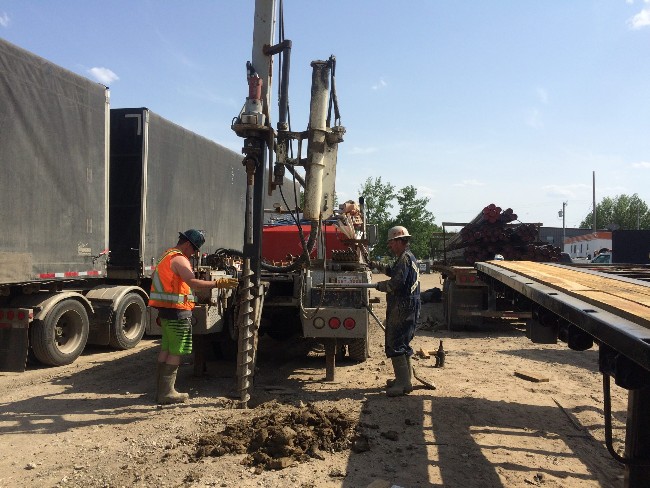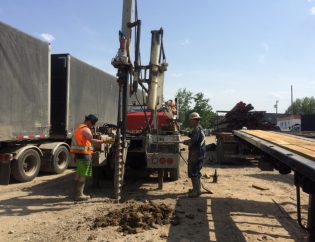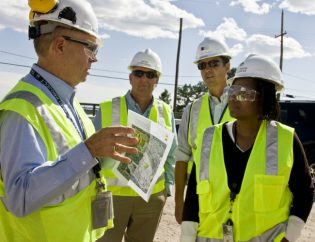
The foundation of property development relies on the firmness and stability of the groundwork to a great extent. When building such a foundation, it is necessary to investigate the ground and determine whether it is fit to withstand a large construction. Engineers effectuate a geotechnical investigation of the subject site for a townhouse development by determining the subsurface soil and groundwater conditions. Moreover, they provide geotechnical design parameters and recommendations for the foundation of the building structures and underground utilities.
What Is the Scope of Work?
Engineers define the scope of work prior to the investigation. The scope of work for this investigation includes but is not limited to:
- Characterizing the soil parameters and groundwater status within the proposed development site by conducting borehole drilling operations in the field as well as laboratory testing programs
- Addressing any concerns related to sub-surface soil and groundwater conditions in the proposed development site
- Providing geotechnical recommendations and comments for the design and construction of the proposed townhouse building structures, underground utilities, surrounding parking areas and drive lanes within the townhouse complex
How Is Geotechnical Site Investigation Implemented?
Engineers receive a development proposal from the client defining the type of construction they want. In this proposal, the client lists the site area, the number of residential townhouses to be built and the requirements of other house aspects, such as basements or garages. The proposal also includes parking spaces, drive lanes, several access roads and more. Ahead of the investigation, the professionals describe the site, its surroundings and its locality. The geotechnical site investigation is performed in two detailed steps:
Field Drilling Program
The geotechnical field drilling program is conducted using a truck-mounted drill rig, solid stem auger flights and split spoon sampling equipment for SPT tests through which drilling, soil sampling, and logging of various soil strata are performed. During the field investigation, grab samples are collected from the auger flights at a regular depth interval along with the execution of Standard Penetration Tests (SPTs) at selected depths. In addition, pocket penetrometer readings are taken on intact cohesive soil samples to indicate the unconfined compressive strength of cohesive soils. Following this, sloughing and groundwater conditions are observed and recorded during drilling. Groundwater conditions are monitored after drilling and a few weeks following the drilling completion.
Laboratory Testing
- Natural moisture content tests are performed on all soil samples recovered from the boreholes to obtain indications of the soil moisture content at various depths.
- Atterberg Limit tests, grain size analyses and soil soluble sulfate tests are performed on selected soil samples, which aid in soil identification and classification.
Geotechnical Recommendations
In accordance with the observation and the investigation results, engineers determine the fitness of the land for townhouse construction. Furthermore, they also enact a geotechnical recommendations report that lists the land requirements that will eliminate any shortcomings for construction. These recommendations may include site grading, concrete slab on grade, foundation options, underground utilities and more.
A detailed geotechnical site investigation comes with years of expertise and professionalism; everything that MR Engineering provides you. Contact us to deliver a precise geotechnical investigation with detailed methodologies for your construction project.


